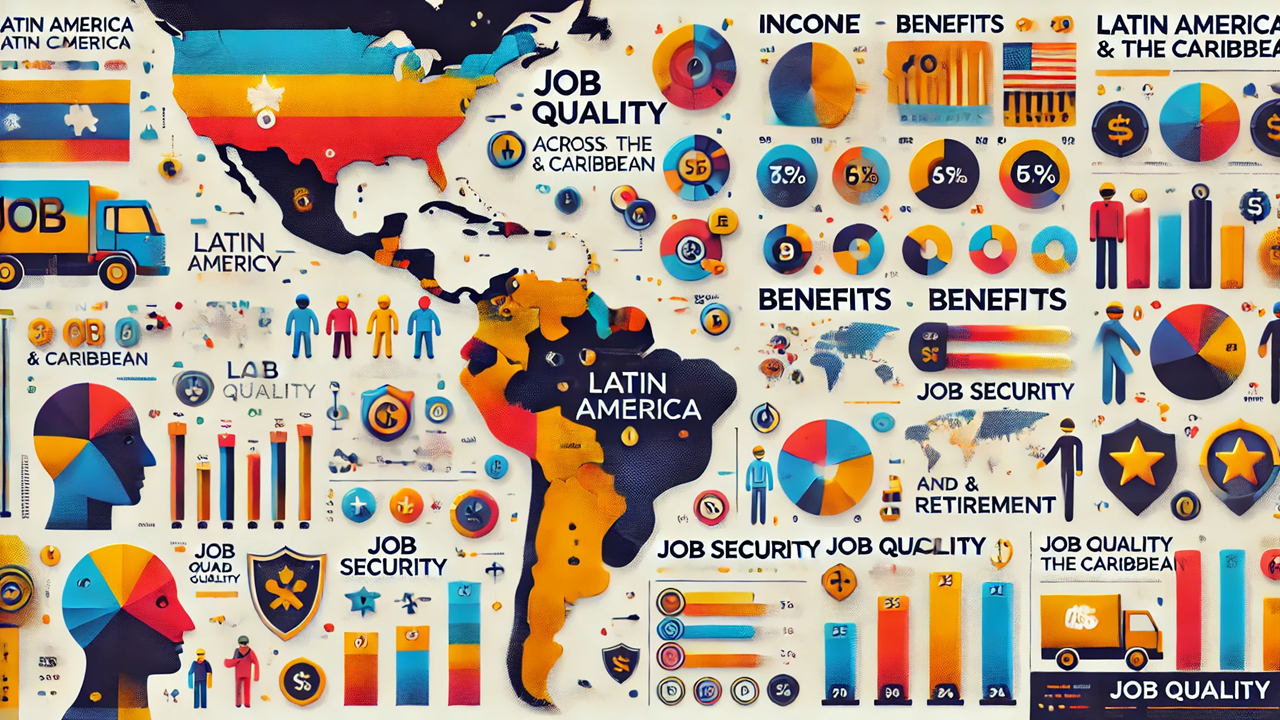Breaking Barriers: Unveiling Job Quality Disparities in Latin America
The World Bank’s report, "The Quality of Jobs in Latin America and the Caribbean", examines job quality across the region using the Job Quality Index (JQI). It highlights significant disparities in employment conditions both between and within countries. While Chile and Costa Rica lead with high job quality scores, nations like Honduras, Guatemala, and Peru face low scores. Women, youth, and rural workers are disproportionately affected by poor job conditions.

A recent World Bank report, The Quality of Jobs in Latin America and the Caribbean, delves into the pressing issue of job quality across the region. The report, utilizing the Job Quality Index (JQI), offers a nuanced look at the disparities in employment conditions and their significant correlation with economic development, poverty alleviation, and inequality reduction.
Regional Disparities in Job Quality
Job quality in Latin America and the Caribbean (LAC) is far from uniform. Countries like Chile and Costa Rica lead with the highest JQI scores, reflecting better earnings, benefits, security, and satisfaction among workers. Conversely, nations such as Honduras, Guatemala, and Peru struggle with low job quality, leaving workers in precarious conditions.
The divide doesn’t end at national borders. Within countries, women, youth, and rural workers face disproportionately lower job quality compared to their urban, male, and prime-age counterparts. This gap underscores the urgent need for targeted policies to bridge these inequalities.
Linking Job Quality to Economic Growth
The report reveals a compelling connection between job quality and economic growth. Countries with higher JQI scores not only witness increased GDP but also experience a marked reduction in poverty and inequality. Notably, adjusting employment-to-GDP elasticity for job quality highlights how economic growth contributes to better employment conditions, particularly in nine of the fifteen countries studied.
However, the study points out exceptions, such as Honduras, where economic growth has not translated into improved job quality. This anomaly aligns with the concurrent decline in labor productivity, highlighting structural challenges within the labor market.
Sectoral and Demographic Challenges
Job quality varies significantly across economic sectors, with industrial jobs offering better conditions compared to services and agriculture. Rural areas—characterized by informal and seasonal employment—consistently lag behind urban counterparts. The disparities are most pronounced in nations like Honduras, where rural workers endure the lowest job quality scores.
The report also highlights pervasive gender gaps, with women in Peru and Bolivia facing the widest disparities in job quality compared to men. Similarly, youth (ages 15–24) encounter the lowest JQI scores, reflecting limited access to stable and rewarding employment opportunities.
Measuring Job Quality: The JQI Approach
The JQI aggregates four dimensions—earnings, benefits, security, and satisfaction—to provide a comprehensive assessment of job quality. By employing the multidimensional framework developed by Alkire and Foster, the index ensures comparability across countries and periods. Key metrics include income above the poverty line, access to health insurance and pensions, job permanence, and inferred satisfaction.
Implications for Policy and Development
The findings offer critical insights for policymakers. To improve job quality, governments must address low labor productivity, particularly in agriculture and informal sectors. Expanding access to social benefits and ensuring job security are essential for empowering vulnerable groups such as women, youth, and rural workers. Bridging these gaps is vital not only for individual welfare but also for driving sustainable economic growth.
The report’s overarching message is clear: enhancing job quality is central to achieving equitable development in Latin America and the Caribbean. By addressing systemic disparities, the region can unlock the full potential of its labor force.
The World Bank’s report, The Quality of Jobs in Latin America and the Caribbean, sheds light on the urgent need for action to improve job quality across the region. By leveraging insights from the JQI, stakeholders can pave the way for a more equitable and prosperous future.
- FIRST PUBLISHED IN:
- Devdiscourse
ALSO READ
India's Greenhouse Gas Emissions Drop in 2020 Amid Economic Growth Decoupling
Nigeria's National Credit Guarantee Company: A Boost for Economic Growth
India's 2025 Vision: Economic Growth, Market Insights, and Cultural Trends
Opposition Leader Edmundo Gonzalez's Bold Return to Latin America
Venezuelan Opposition Leader's Strategic Latin America Tour










